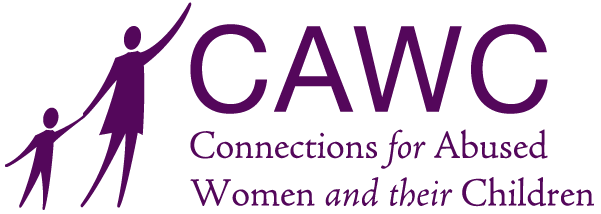Overview
CAWC is committed to ending domestic violence
Connections for Abused Women and their Children (CAWC) is a 501(c)3 designated nonprofit organization, staffed by a team of multi-cultural, bilingual professionals, volunteers, student interns and governed by a volunteer member Board of Directors who represent a variety of business and community interests. CAWC enjoys a broad base of support from government, corporations, foundations, United Way and individual contributions as well as special event revenues.
With a long history of service and advocacy for abused women and their children and over the years, CAWC has evolved in response to changing needs, focusing on client-based services that are both trauma-informed and trauma-sensitive.
CAWC continues to be a recognized leader in the domestic violence field; active in coalitions and advocacy groups in the City and the State. It is known throughout Chicago for its emphasis on bi-cultural, bilingual services. Connections for Abused Women and their Children is a member of the Illinois Coalition Against Domestic Violence and the Metropolitan Chicago Battered Women’s Network.
Mission
Connections for Abused Women and their Children (CAWC) is committed to ending domestic violence. Using a self-help, empowerment approach, we provide a shelter for adults and children, counseling, advocacy, and a 24-hour hotline for people affected by domestic violence. We work for social change through education, service collaboration, and institutional advocacy.
Philosophy
CAWC believes that all people have a right to violence-free lives. We believe that abusive acts are acts of power and control that the victim does not provoke, enjoy or deserve. We believe in holding perpetrators of abuse accountable for their actions. We believe that all people have the right to be treated with dignity and respect. We believe that victims of abuse can regain control of their lives through appropriate support services, information and referral to community services.
CAWC Facts:
To reflect the expanded scope of its current services and goals for the future, CAWC changed its name from Chicago Abused Women Coalition to Connections for Abused Women and their Children, retaining its highly recognizable acronym of CAWC in 2008.
In 1977, CAWC established the first domestic violence hotline and opened the first shelter for battered women and their children, Greenhouse Shelter, in 1979.
Leadership
Engaged leaders with commitment to our mission
Through the support of CAWC’s board and staff leadership, we are able to provide a safe haven to families fleeing domestic violence.
CAWC Executive Staff
CAWC’s employees are highly qualified and dedicated individuals who reflect the diverse communities we serve. Above all, we display a deep level of commitment to every survivor who enters our doors.
CAWC Board of Directors
CAWC’s Board of Directors is comprised of a dedicated group of individuals with backgrounds in law, medicine, business, finance, and nonprofit leadership, and includes survivors of domestic violence.
Let’s impact the lives of those who need it most
We’ve made a difference. Your time and talents allow us to do even more.
Hours of comprehensive domestic violence services provided in 2018
Adults & children have received safe, confidential shelter in 2018
Domestic violence hotline calls answered in 2018
Survivors received legal advocacy in 2018
Get Involved
Make a difference in the lives of survivors
Partner with CAWC in our mission to end domestic violence. We believe that all people have a right to violence-free lives.
Become a volunteer
Direct Service volunteers are a vital part of our program. Your time, talents, and commitment help us give domestic violence survivors and their children control over their lives.
Full-time employment
Individuals who share our passion for ending domestic violence are encouraged to apply. As an employee, you’ll enjoy a workplace that strives to foster a positive, engaging work environment.
Join the Associate Board
Associate Board is a leadership group of young professional who leverage their skills, networks, and resources to help build our organizational capacity.
